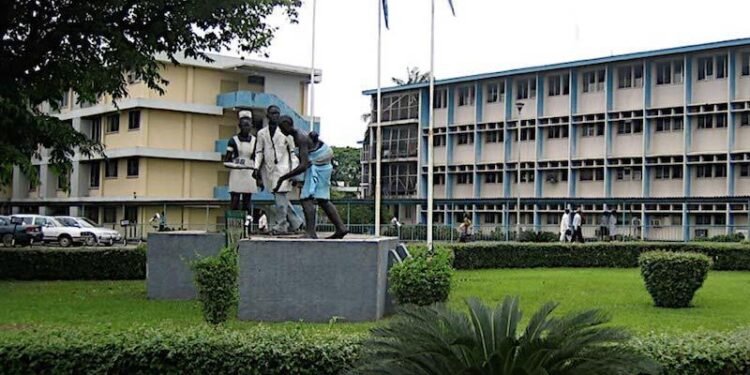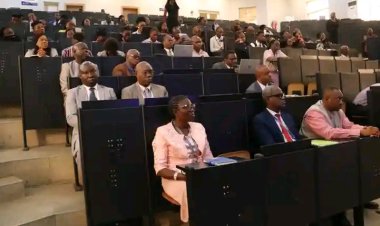Lagos State University Teaching Hospital Launches Bone Marrow Transplant Program for Sickle Cell Disease
The Lagos University Teaching Hospital (LUTH), in collaboration with the Sickle Cell Foundation Nigeria (SCFN), has launched a bone marrow transplant program aimed at curing sickle cell disease in Nigeria.

The Lagos University Teaching Hospital (LUTH), in collaboration with the Sickle Cell Foundation Nigeria (SCFN), has officially launched a groundbreaking bone marrow transplant program aimed at curing sickle cell disease in Nigeria. This initiative addresses the urgent need for comprehensive care for individuals affected by this condition, which poses significant health challenges in the country.
In a statement jointly issued by LUTH's Chief Medical Director, Prof. Wasiu Adeyemo, and SCFN's National Director, Dr. Annette Akinsete, the critical importance of the program was underscored. Sickle cell disease often leads to life-threatening complications, organ damage, and significantly reduced life expectancy for those affected.
The newly established program focuses on bone marrow transplants using donors from family members, a well-established cure for sickle cell disease. The statement highlighted the need for comprehensive care programs, which include newborn screening, penicillin prophylaxis, and Transcranial Doppler screening for children at risk of stroke. These initiatives are followed by chronic blood transfusion therapy and the increasing use of hydroxyurea therapy, which has improved survival rates for children transitioning into adulthood.
Building on previous efforts, the program follows the establishment of a post-transplant clinic at LUTH in 2019, which was the first of its kind in sub-Saharan Africa. This clinic previously provided post-transplant care to patients who had traveled abroad for treatment.
The program has already begun treating its first patients. The initial bone marrow stem cell infusions occurred on September 17 and September 19, 2024. Both patients underwent a treatment regimen that included exchange blood transfusions, chemotherapy, and anti-infective prophylaxis, preparing them for the infusion of stem cells harvested from family donors. They are currently receiving immediate post-transplant care within the transplant unit at LUTH.
While bone marrow transplantation is recognized as an effective cure for sickle cell disease, it is not without risks. Complications may include infection, graft-versus-host disease, infertility, and even mortality. However, advancements over the past two decades have made the procedure increasingly viable for both children and adults with severe cases. The multidisciplinary nature of the program necessitates a collaborative approach, involving pediatricians, adult hematologists, psychiatrists, anesthesiologists, nurses, dieticians, pharmacists, and other healthcare professionals.
Guided by an expert team that includes Prof. Adetola Kassim from Vanderbilt University Medical Center and Prof. Josudela Fuente from the Imperial College London Healthcare NHS Trust, the program represents a significant step forward in addressing sickle cell disease in Nigeria. Despite its effectiveness, the high complexity and costs associated with bone marrow transplants have historically forced many patients to seek treatment abroad, resulting in considerable financial and emotional burdens on families.
The launch of LUTH's bone marrow transplant program marks a hopeful new chapter in the fight against sickle cell disease, offering patients in Nigeria access to critical treatments that were previously unavailable.

 Chris Oyeoku Okafor
Chris Oyeoku Okafor 



